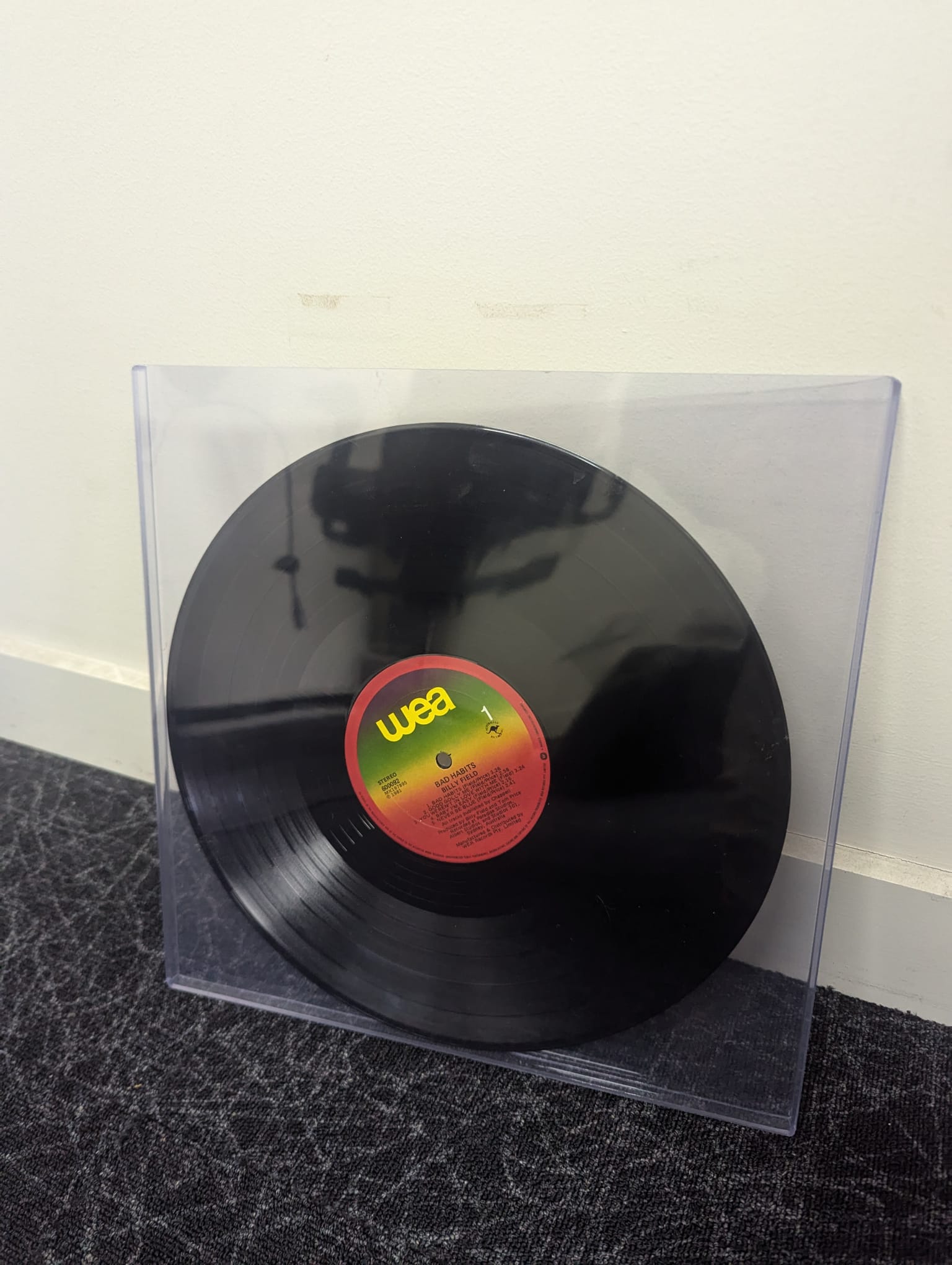We have had a lot overwhelmingly positive of feedback about one of our new products for record / LP enthusiasts - the Vinyl Top loader. However, our customers have also expressed concerns over the suitability of using PVC to store and protect records.
These concerns led us to a few sites, including this blog where the effects of PVC outgassing on records was very concerning. Being inclined towards science and armed with relatively good google-Fu skills, we set out to get to the bottom of what was happening - a basic principal approach!
TLDR: Soft, plasticized PVC Bad, Rigid PVC OK, but if concerned wrap your record in a jacket and polypropylene sleeve!
How Records A Made
Unsurprisingly to anyone that can read, Vinyl Records are made from Vinyl, or polyvinyl chloride (PVC). A great rundown on the chemistry of records can be found here.
We dived a bit further and discovered that all PVC outgasses to varying degrees and interestingly - if somewhat unsurprisingly - composition, additives and environmental factors all play a [art.
Understanding PVC and Its Types
PVC is extremely and is used in various applications. There are two main types of PVC: rigid and plasticized (soft). Rigid PVC is more durable and less likely to 'outgass', whereas plasticized PVC contains added chemicals to make it more flexible and its this flexibility that can lead to increase volatility, a hence higher outgassing of hydrochloric and hydrobromic acids.
The Risks of Plasticized PVC
Plasticized PVC can pose a significant risk to your vinyl records. The added plasticizers, which give the material its flexibility, can leach out over time. This process can lead to a sticky residue that may transfer onto the record's surface, causing irreversible damage. This is especially concerning for long-term storage, as even slight degradation can affect the audio quality and collectible value of your records.
Temperature Considerations
While it's not common practice to heat records, it's important to note that any PVC that comes into contact with vinyl should never be exposed to elevated temperatures. Heating can accelerate the leaching of plasticizers, increasing the risk of damage. Moreover, heat can cause warping of the records themselves, compromising their quality and playback.
Conclusion: A Cautionary Note
In conclusion, while PVC vinyl top loaders might seem like a convenient option for protecting your records, it's crucial to be cautious about the type of PVC used. Plasticized soft PVC should be avoided due to the risk of plasticizer migration and potential damage to your records. Even with rigid PVC, it's advisable to ensure that the sleeves are used in a stable, cool environment to prevent any heat-related issues.
For the best long-term protection, consider using archival-quality, acid-free materials specifically designed for vinyl records (such as polypropylene or plastic). These options provide peace of mind, ensuring that your collection remains in pristine condition for years to come. Remember, when it comes to protecting your valuable records, it's better to be safe than sorry.
Update #1 - 01/10/24
We have placed a record directly into one of our Rigid PVC Top loaders for about 2 months now, and will monitor and update its progress periodically!
Update #2: 31/7/25
Its been close to a year and still no visible hazing! Note this is a test, dont put records in like this!







